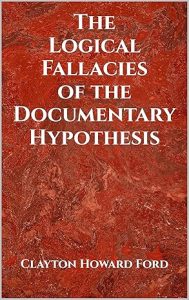Lesson 9
6. The Virgin Birth
Why is it necessary to believe in the virgin birth of Christ? Because the Scriptures teach it. This doctrine is taught by all of the Christian denominations and until recently, the only people who denied it were outside of the Church.
Those who deny the virgin birth are actually attacking the Deity of Christ. They are trying to say that he was an ordinary man, born like any other man.
The Scriptures clearly teach the virgin birth. It was predicted by Isaiah over 700 years before it happened (Is. 7:14). Some people would argue that the Hebrew word for “virgin” really means “young woman.” However, a young woman giving birth to a son is an everyday occurrence. How could an everyday occurrence be a “sign” from the Lord? The sign had to be something highly unusual. When Matthew quotes this verse (Matt. 1:23), he uses the Greek word for “virgin.”
The two birth narratives in the Gospels (Matt. 1:18-25, Luke 1:26-35, 2:1-7) clearly state that Mary was a virgin at the time Jesus was conceived and born.
7. The Atonement of Christ
The word “atonement” is used in the King James Version of the New Testament in Rom. 5:11 –
And not only so, but we also joy in God through our Lord Jesus Christ, by whom we have now received the atonement.
The NKJV uses the word “reconciliation” instead of “atonement.” Reconciliation is the final result of the atonement. The English word “atonement” actually comes from the phrase “at one.” It signifies that the purpose of Christ’s death was to help us become “at one” with God once again.
To fully understand what the atoning work of Christ accomplished, we must first understand what sin did to us and to our relationship with God the Father.
Is. 59:2 says that our sins separated us from God the Father. Sin also made us enemies of God (Rom. 5:6-11).
As such we deserved God’s wrath. Our punishment should have been death (Rom. 6:23), that is, we should have been eternally separated from God and suffering in the lake of fire forever.
But because God loved us, he had a different plan for us (Eph. 2:4-7).
His love for us made him want to live with us forever, but his justice could not simply ignore our sins. His justice demanded that someone pay the penalty for our sins. Someone had to shed blood because of our sins, for “without shedding of blood, there is no remission” (Heb. 9:22).
He chose to send his only begotten Son to pay our penalty for us.
God foretold the sacrifice of his Son by having the Israelites celebrate the Day of Atonement every year. On that day, a perfect animal was sacrificed to make atonement for the nation of Israel and to cleanse them from their sins (Lev. 16:30).
So, too, Jesus was the perfect sacrifice. He was the only man who had no sin. And his sacrifice made atonement for us and cleansed us from our sins (Rev. 1:5).
By dying on the cross, he took our punishment for us and appeased God’s wrath:
And He Himself is the propitiation for our sins, and not for ours only but also for the whole world (1 John 2:2).
In this is love, not that we loved God, but that He loved us and sent His Son to be the propitiation for our sins (1 John 4:10).
“Propitiation” means “that which propitiates.” Propitiate means “to make favorably inclined, to appease.”
His death overcame our separation from God the Father and reconciled us to him (Rom. 5:6-11). We can now live forever with God the Father, not because of what we have done, but because of the atoning work of Christ. That is what we mean when we speak of the atonement.
The message of the atonement is the message we must carry to the lost (2 Cor. 5:18-21).








